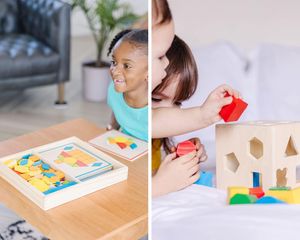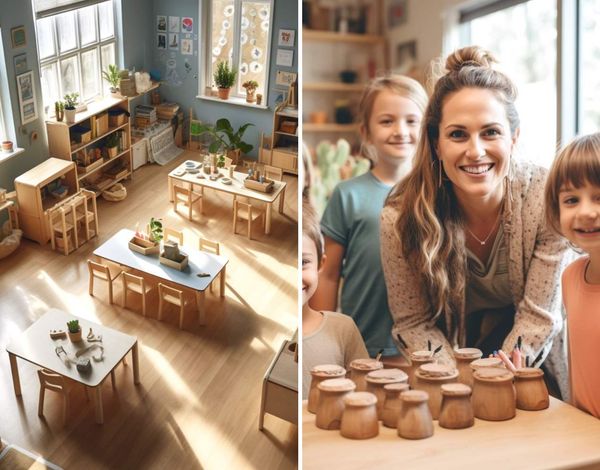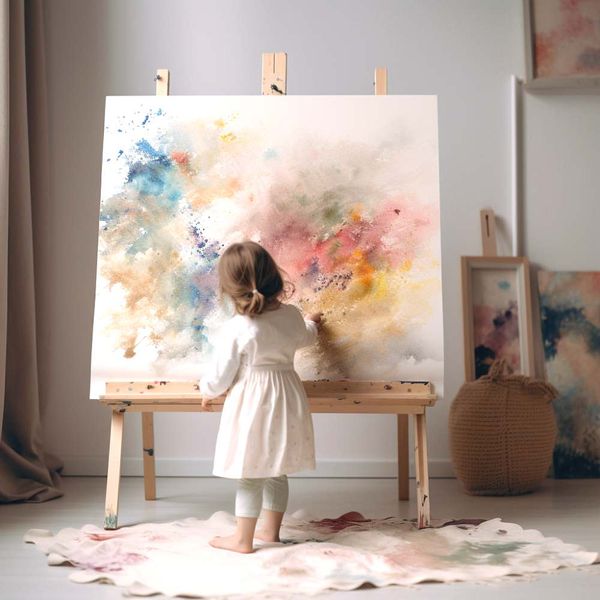Ready to spill the beans on a parenting secret that Montessori educators have known for years?
Buckle up, because we're about to take you on a delightful ride through the world of play-based learning, Montessori style!
Listen, life's no straightforward path, right? Just like you wouldn't want to tie your kiddo down to a one-size-fits-all approach to life, you probably wouldn't want their education to follow a cookie-cutter format either.
Why not let them frolic in the meadows of imagination, curiosity, and, most of all, play?
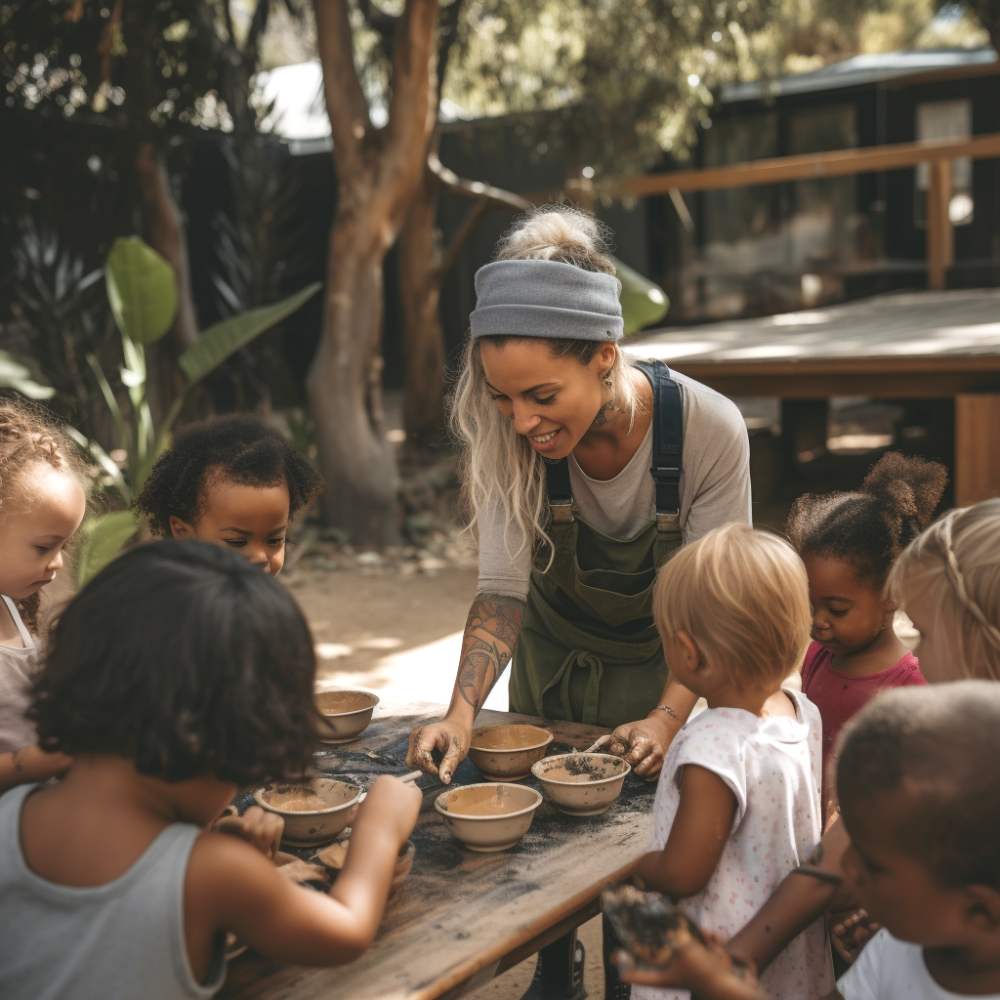
But before you jump off and let them go dress up as Spiderman and terrorise the poor neighbour, there is a form of play that still fits in with the Montessori method!
Here's the headline news that The Hechinger Report broke out but Montessori has been shouting from the rooftops: kids learn best through guided play. It's more than just fun and games; it's about letting your child be the master explorer, discovering new frontiers with carefully designed activities and a sprinkle of adult guidance.
You might think of it as the "True North" of learning—the point of maximum potential and fulfillment, a concept we hold dear here at The Montessori Compass.
Here's the article in short:
Key Takeaways
- Guided Play: Montessori education promotes guided play, which is more than just fun and games. It involves adult guidance and carefully designed activities to maximize learning.
- Purposeful Materials: Montessori classrooms use purposeful materials rather than traditional toys to meet children's developmental needs. These materials are designed to aid cognitive and emotional growth.
- Work as Play: In Montessori, work is not separate from play. When children choose an activity, it becomes a form of enriching and fulfilling play, often referred to as "purposeful play."
- Intrinsic Motivation: Montessori education fosters intrinsic motivation by giving children the autonomy to choose their activities, making learning enjoyable and akin to play.
- Holistic Development: Montessori play-based learning aims for holistic development, including cognitive growth, emotional and social skills, and physical well-being.
This isn't your grandma's game of "peek-a-boo"; this is Object Play, Pretend Play, Physical Play—each a different but crucial compass point guiding your child towards their unique True North.
Now, if this tickles your parenting bone (and I bet it does!), let's dive deeper into why Montessori considers play the VIP guest at the educational soirée, and more importantly, how it defines play!
Understanding the Montessori Method
Now that we've begun to explore the transformative world of Montessori-guided play, it's time to delve deeper into the Montessori Method itself.
This approach is far more than a teaching style; it's a comprehensive educational philosophy that could profoundly shape your child's lifelong learning journey.
Montessori Materials and Learning Environment
Here's the skinny. When you walk into a Montessori classroom, it's like stepping into a wonderland where every shelf screams, "Hey kiddo, come discover me!" Montessori materials aren't just blocks and beads.
They're finely-tuned instruments of wonder designed to stoke the fires of imagination and skill-building. These materials are:
- Hands-On: Forget rote learning; these tactile treasures offer interactive experiences that are about as hands-on as your toddler is with your smartphone!
- Developmentally Appropriate: Age-what now? Oh, you heard it right. Materials are sorted to fit the developmental needs and tasks of each age group, giving every child in a Montessori program their own set of magical tools to explore.
- Empowering: By choosing their own tasks, children become captains of their own educational ships, navigating through the Montessori school program with increasing self-reliance.
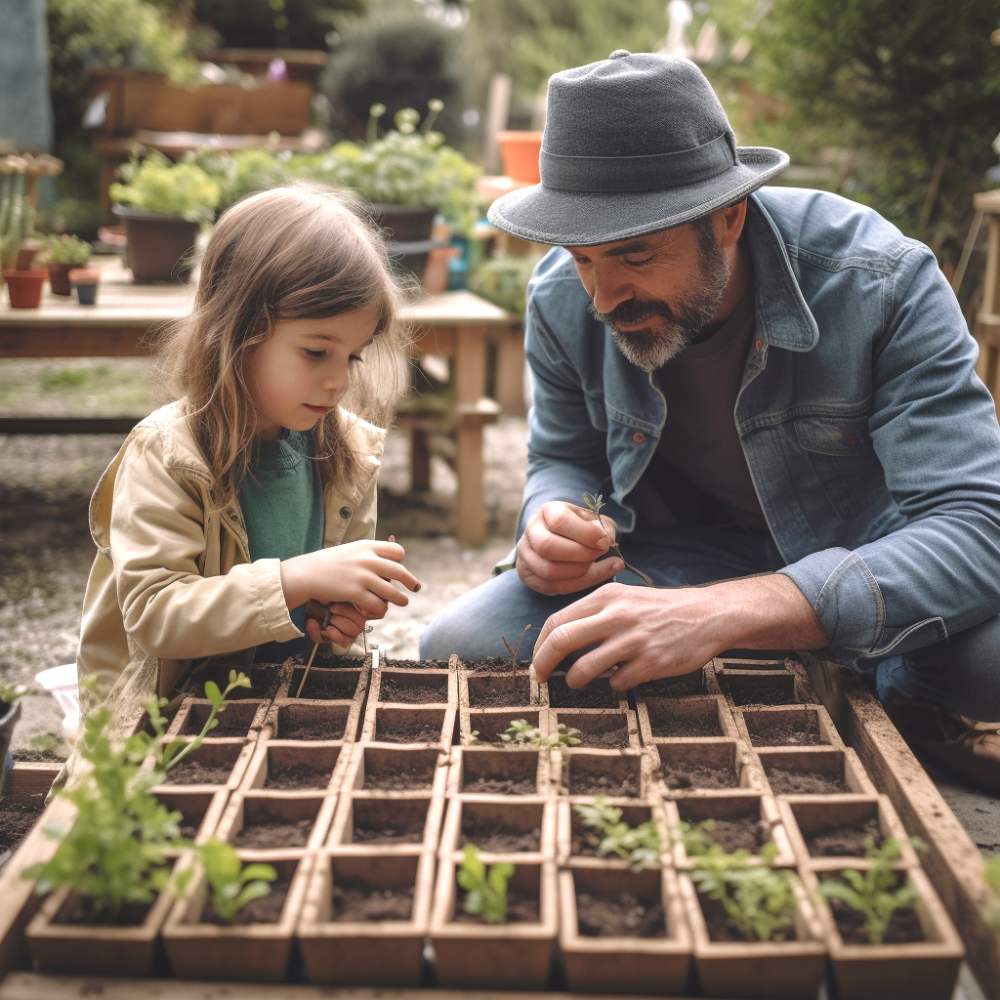
Teachers, or should I say, you, are there to observe, gently guide, and step in when needed, making the classroom a safe haven where curiosity can be let loose like a pirate on shore leave.
Concepts and Skills in Montessori
At the very core of any Montessori program, be it a Montessori preschool or a more advanced level, or Montessori at home, lies a map, etching out the routes for holistic development. What am I talking about?
- Cognitive Growth: From language to math skills, the method nurtures young Einsteins and Shakespeares in the making.
- Emotional and Social Skills: But what's brilliance without a heart? Learning to interact, empathize, and cooperate is as vital as learning to read or write.
- Physical Well-being: Whether it's a play-based pre-school or a Montessori school, motor skills and body awareness are a part of the journey.
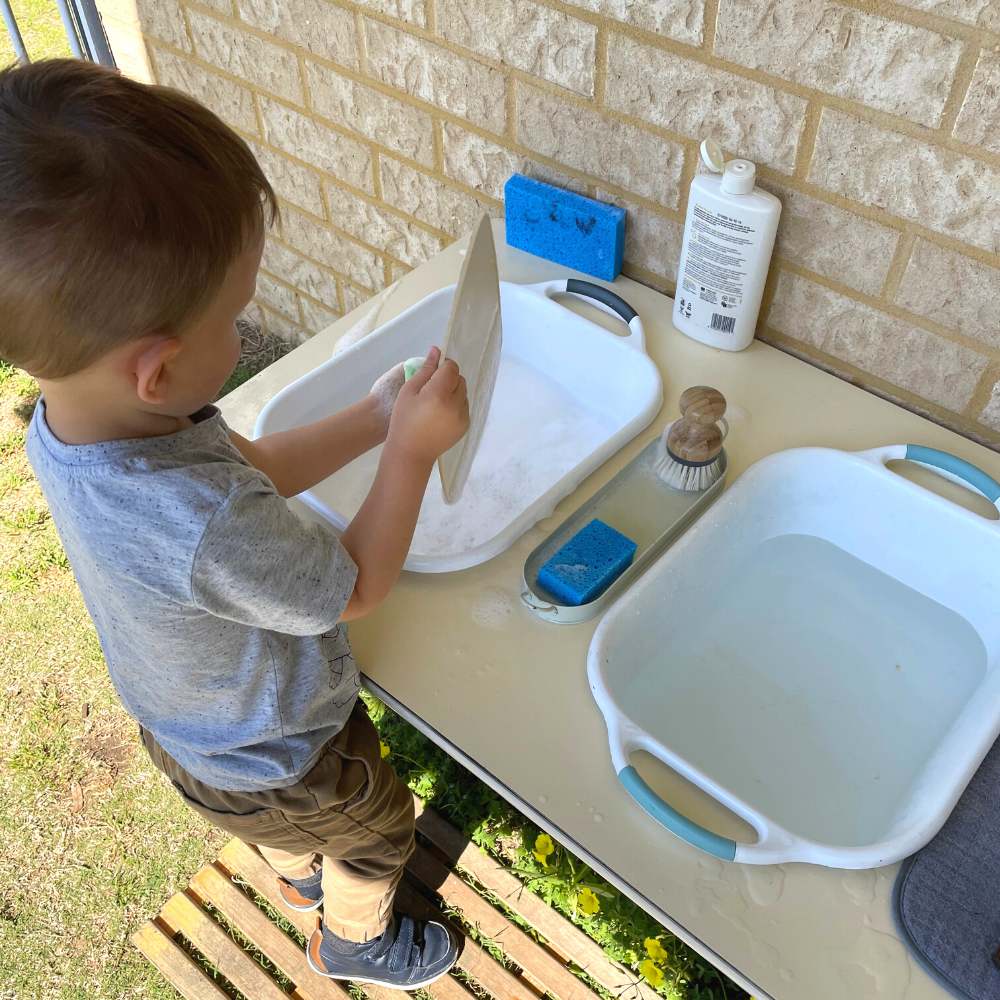
The beauty of Montessori practitioners such as yourselves lies in your ability to act like seasoned cartographers—mapping the land but letting the young explorers set the compass.
They balance expert guidance with fostering autonomy, ensuring every child's journey is their own yet profoundly enriched and safe.
Role of Play in Montessori
Having peeled back the layers of the Montessori Method, it's essential to dive into the core of what makes it truly transformative: the role of play.
Far from frivolous activity, play in Montessori schools is a powerhouse for child development—woven seamlessly into the curriculum.
It's the secret sauce that makes Montessori programs so irresistibly effective.
Purposeful Materials Over Toys
Dr. Maria Montessori made a groundbreaking observation: children in her classrooms gravitated toward purposeful materials rather than traditional toys.
The reason?
Purpose-driven materials speak directly to a child's developmental needs. This observation led to a paradigm shift in Montessori programs, where toys were replaced by materials meticulously designed to aid cognitive and emotional growth.
In other words, when a child plays in a Montessori classroom, they're not just playing—they're growing.
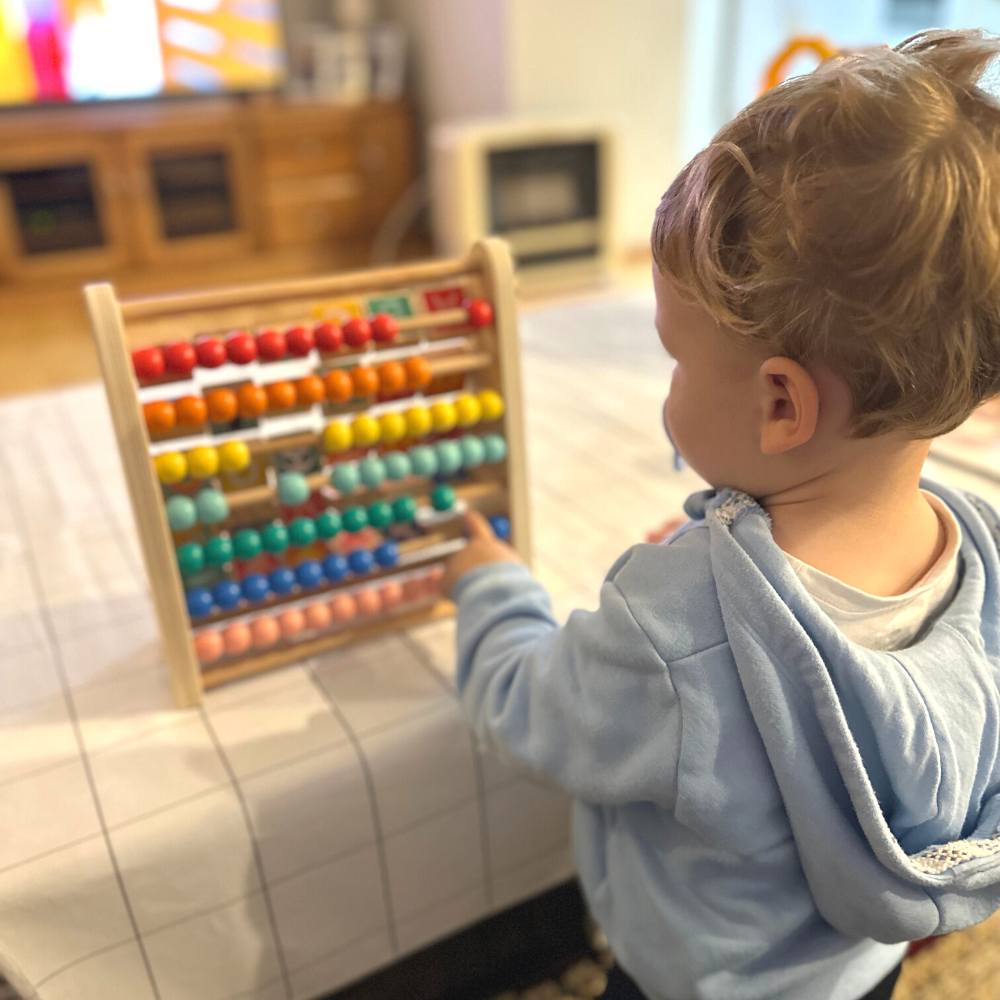
Work as Play
Work, in Montessori parlance, isn't a four-letter word. Instead, it's an exhilarating journey of exploration and self-discovery. When your child chooses an activity—be it math, language, or a sensory game—it morphs into a form of "play" that is both enriching and fulfilling.
You'll find no bored faces in Montessori schools because children actively engage in what Montessori educators call "purposeful play."
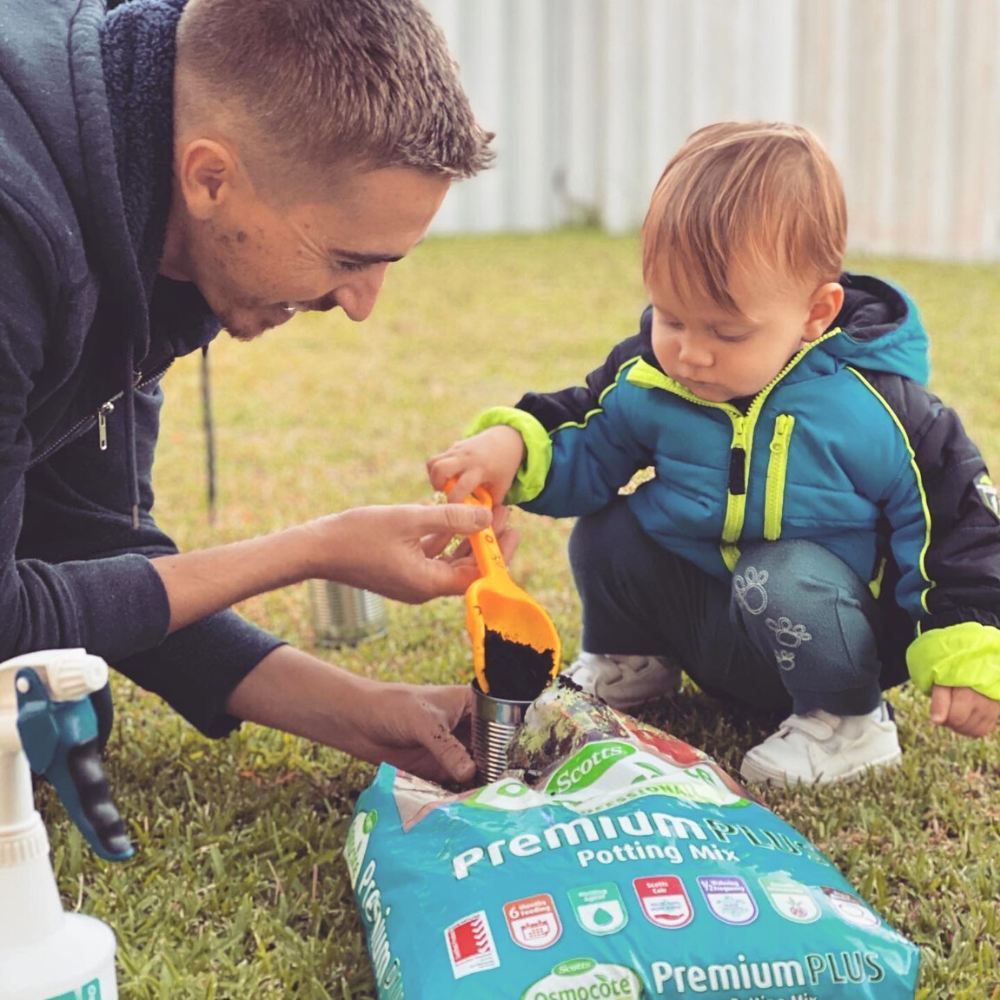
Guided Play for Learning
The beauty of Montessori philosophy lies in the subtlety of adult intervention—what's often referred to as "guided play." Teachers in Montessori schools have specific learning goals in mind and ingeniously embed these into activities that children find irresistibly enjoyable.
It's learning wrapped in the cozy blanket of play, making academic concepts not just palatable but deliciously engaging.
Intrinsic Motivation and Autonomy
One of the most mesmerizing aspects of Montessori education is how it instills intrinsic motivation. By giving children the autonomy to choose their activities and set their pace, learning becomes akin to play.
In this sense, both Montessori pre-school programs and higher levels master the art of turning education into a passion rather than a chore.
Now, does all this focused, purposeful play mean we're tossing free play out the window? Heck no! Everything in moderation, right? I'm a big believer that kids also need their "do-whatever-you-want" time.
Imagine a life where you only ate superfoods and never touched chocolate—sounds pretty dull, doesn't it? Balance is the key, and the same goes for your child's playtime.
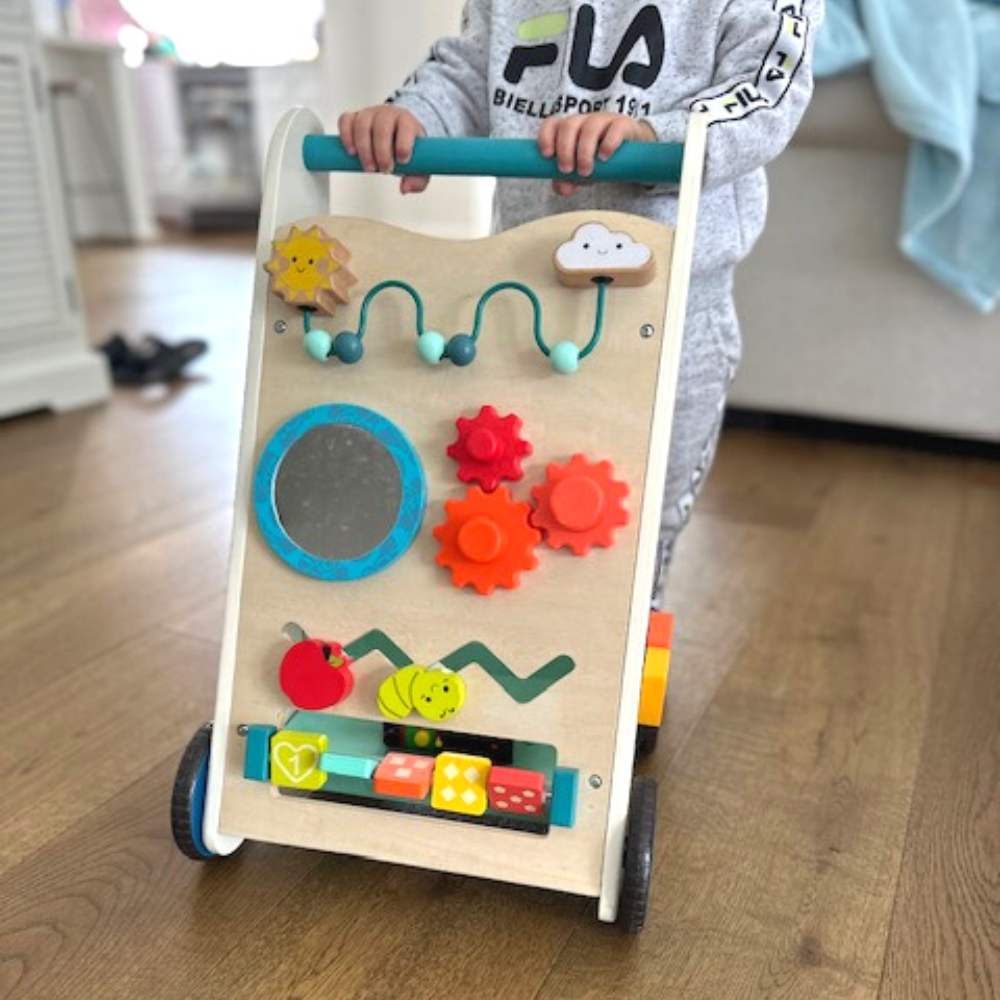
So, summing it up: Montessori play-based preschools aren't just beefed-up daycares. They're playgrounds for the mind that kick the doors wide open on your kiddo's natural zest for learning.
They're cooking up a tantalizing blend of critical thinking, creativity, and yes, some good old-fashioned independence.
Montessori Play and Child Development
Now that we've established what play means in the Montessori journey, let's dig into how this specific kind of play—Montessori guided play—affects your little one's development.
We're about to get academic here but stick with me. This is the good stuff that could genuinely make a difference in your child's future. And hey, I've got the studies to back it up!
Leveling Up Executive Functions
First off, let's talk about executive functions. These are the cognitive skills your child needs for practically everything—academic success, emotional regulation, you name it.
So, when you hear phrases like "play-based preschool" and "Montessori," know that it's not all fun and games. We're talking about play that strategically sharpens the mind.
The Social Connection
Up next is the realm of social skills. In both Montessori and play-based settings, there's room for social interaction, but Montessori adds a special sauce. Guided play in Montessori schools is not just an opportunity to interact, it's a full-on masterclass in social skills.
Sparking Creativity and Problem-Solving Skills
Lastly, let's shine a light on creativity and problem-solving. The Montessori method champions hands-on, self-directed play. And according to Adele Diamond, this approach is like gold for fostering creativity and problem-solving skills in children(3).
They aren't just filling time, they're filling their toolbox with essential life skills.
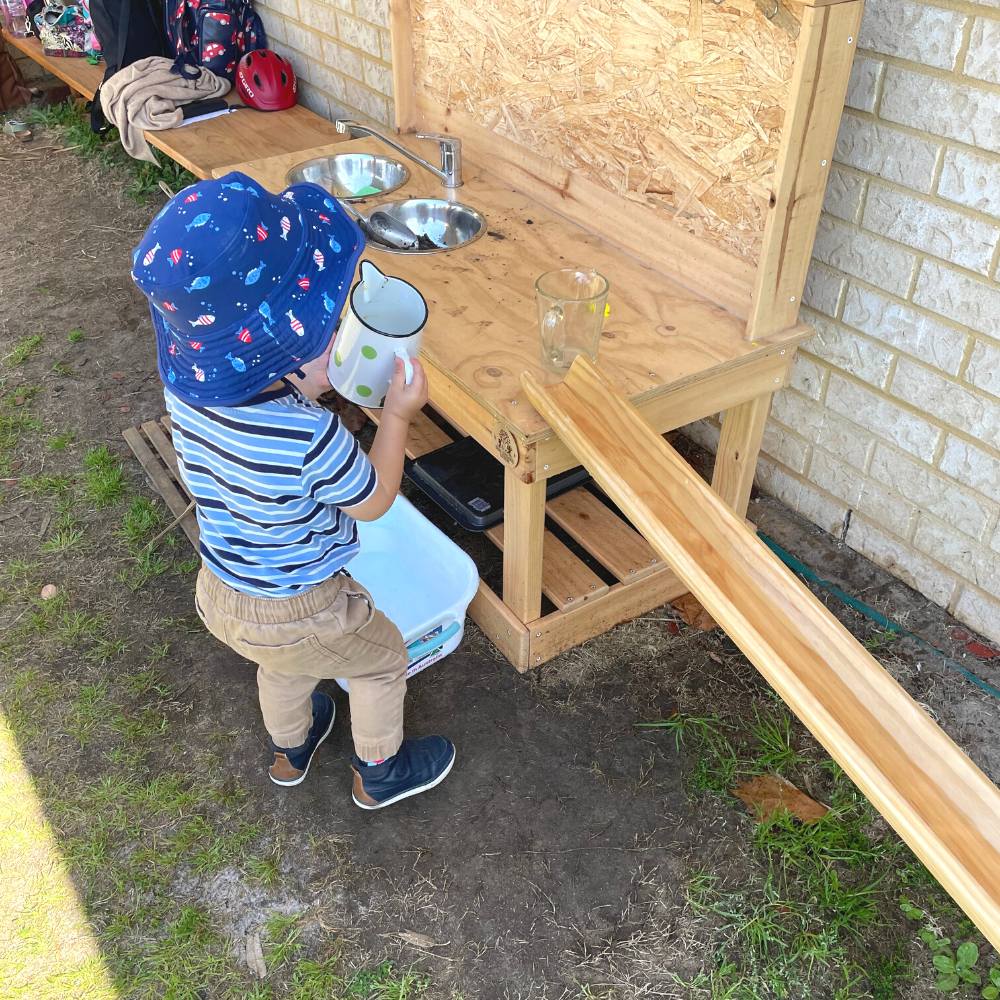
Difference Between Montessori and Traditional Play-Based Education
So, now that you're all jazzed up about the superpowers Montessori guided play can unleash in your kiddo, you might be wondering, "How does this compare to the ol' traditional play-based education I grew up with?"
Great question! Let's dive into this comparison and demystify these terms. Trust me, understanding these nuances could be a game-changer for your child's educational journey.
The Child at the Helm: Montessori's Unique Selling Point
In Montessori schools or at home, your child isn't just a passenger, they're in the driver's seat. As we've established, Montessori approach is built around what I love to call "child-led exploration."
Your little one's interests and abilities aren't just encouraged; they're the actual compass guiding the journey. Montessori classrooms don't just have toys; they have purposeful materials fine-tuned to spark curiosity, nurture focus, and instill a sense of order.
This aligns with my ongoing mantra: feed that natural curiosity, people!
All About the Play: Traditional Schools' Go-To
Now, don't get me wrong, traditional play-based education isn't just fluff and nonsense. Far from it! These settings often have a smorgasbord of toys, games, and activities all geared to make learning fun.
But here's the thing: it's mostly about play. Children in these settings engage in both structured and unstructured play, exploring new concepts as they go along.
Guide vs. Director: Parent or Teacher's Role
Another thing to chew on is the teacher's role in both settings. In a Montessori classroom, the teacher is less Spielberg and more Yoda.
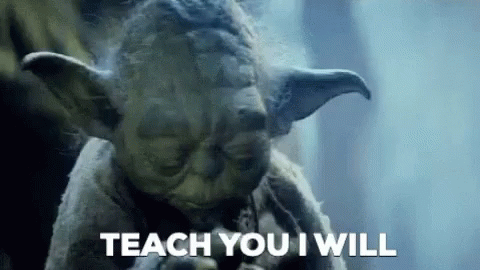
They guide, they observe, but they let the children learn through their own discoveries. It's not a 'sit and get' model. It's a 'go and know' model.
In contrast, in traditional schools, teachers often wear the director's hat. They're more hands-on, setting the stage, scripting the scenes, and guiding the narrative. Both roles have their merits, but they offer different experiences for your child.
Hands-On vs. Imagination: The Learning Materials
One more point of divergence is in the type of activities and materials used. Montessori is big on practical life skills.
Think cooking, cleaning, and even gardening. It's real-world stuff, where kids manipulate real objects, not just toys that symbolize them.
Traditional play-based education often leans more towards symbolic and imaginative play.
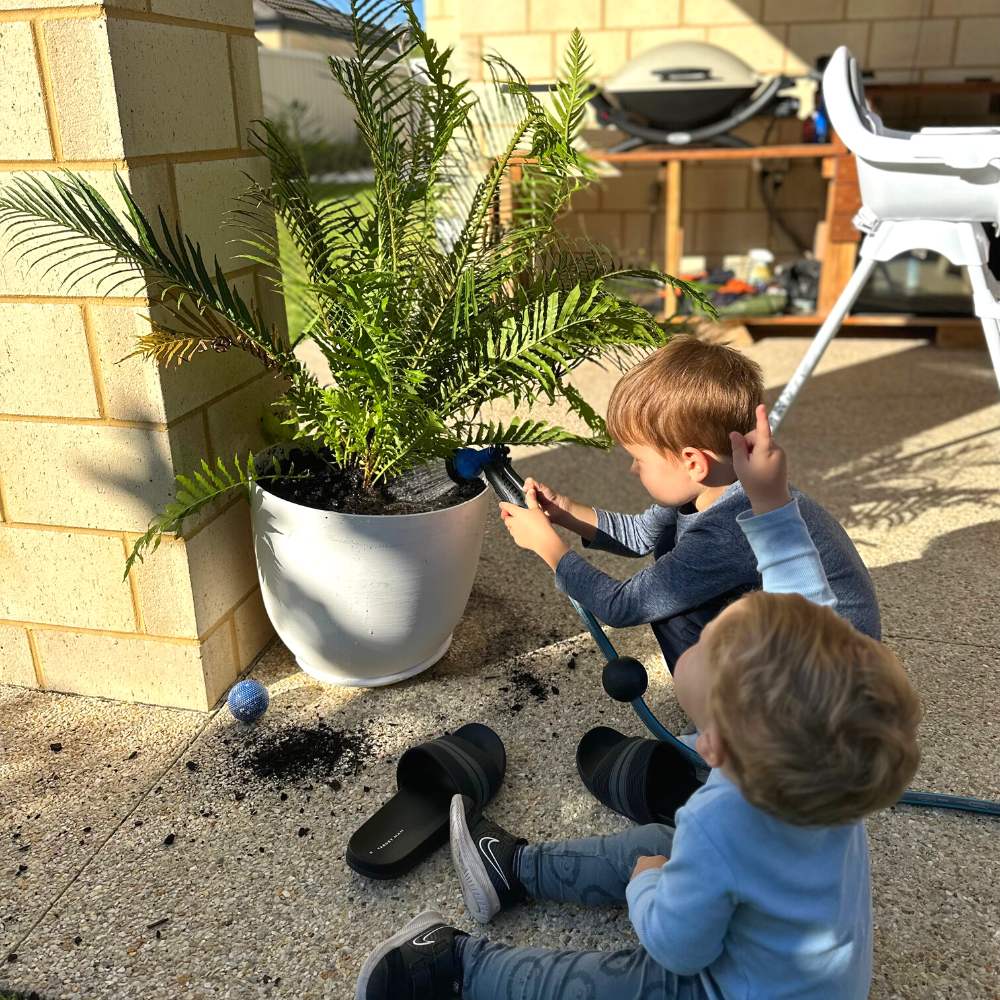
Both Montessori and traditional play-based education have their perks, but they offer different routes to learning.
It's like choosing between a scenic mountain drive and a quick trip down the freeway—both get you to your destination, but the journey feels different.
Your child's temperament, needs, and your educational goals for them can help you choose the right path.
Obviously for myself and my minions, we lean more towards the Montessori approach and it has proven hugely beneficial, but if Christian or Andreas want to dress up as Superman on certain days, I will not stop them.
Remember, knowledge is power. Make the choice that vibes with your child's unique spirit, and you won't go wrong!
Practical Tips for Incorporating Montessori Guided Play At Home
"Great, but how do I actually make this Montessori magic happen in my own living room?"
Don't worry, I've got you. Here are some down-to-earth tips to bring Montessori guided play right into your home. And trust me, you don’t need a degree in Early Childhood Education to get it right!
Involve the Kiddos in the Day-to-Day
First up, it's all about getting the young ones involved in the mundane miracles we adults call "chores."
Why?
Because the Montessori approach sees these daily tasks as fascinating learning playgrounds for children. S
o, the next time you're about to tackle that pile of laundry or start chopping veggies, invite your little one to join you. Not only will this keep them engaged, but it'll also equip them with some practical life skills that they wouldn't get in a traditional school setting.
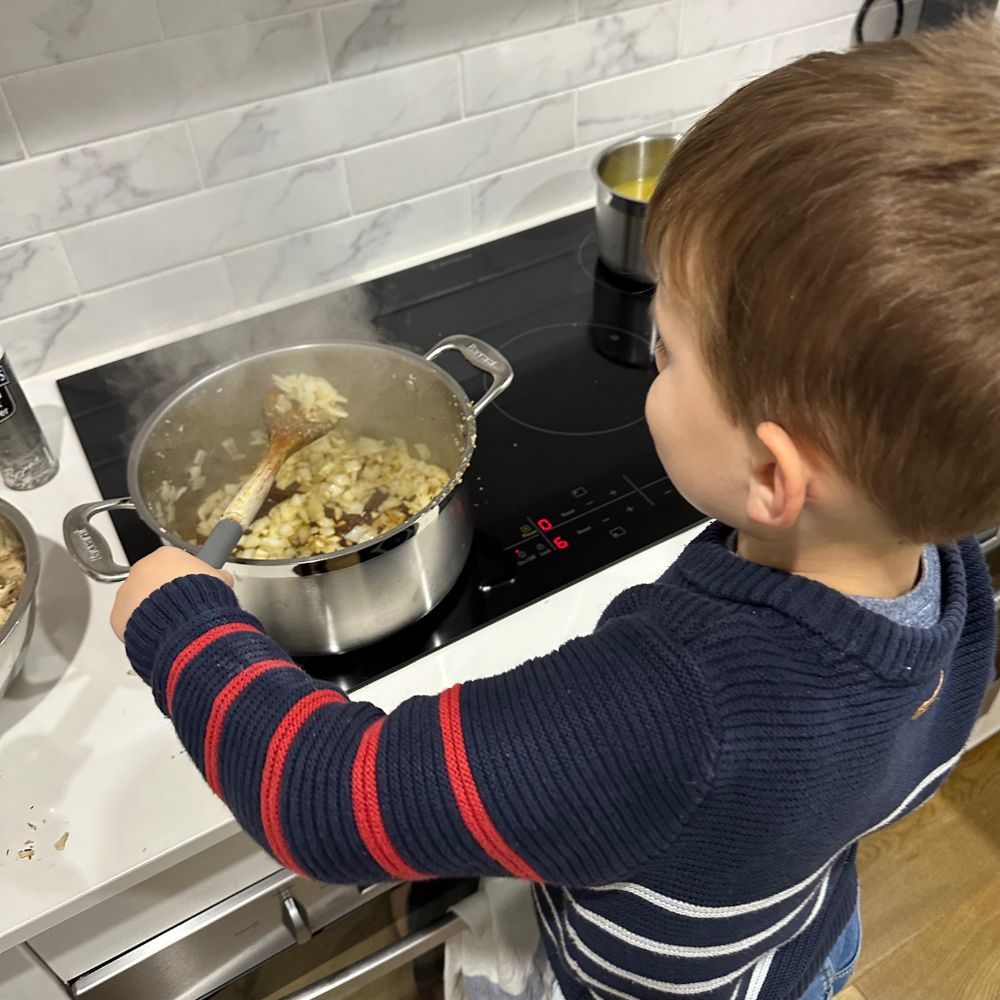
Accessibility is King
Let’s make this simple—make stuff reachable. From their favorite storybooks to art supplies, keep them at a kid-friendly height. Consider investing in some low shelving units or designate a low drawer just for them.
This is a small but powerful way to foster independence and let your child know that their environment is a place to explore and learn. And hey, it's not just about toys and books.
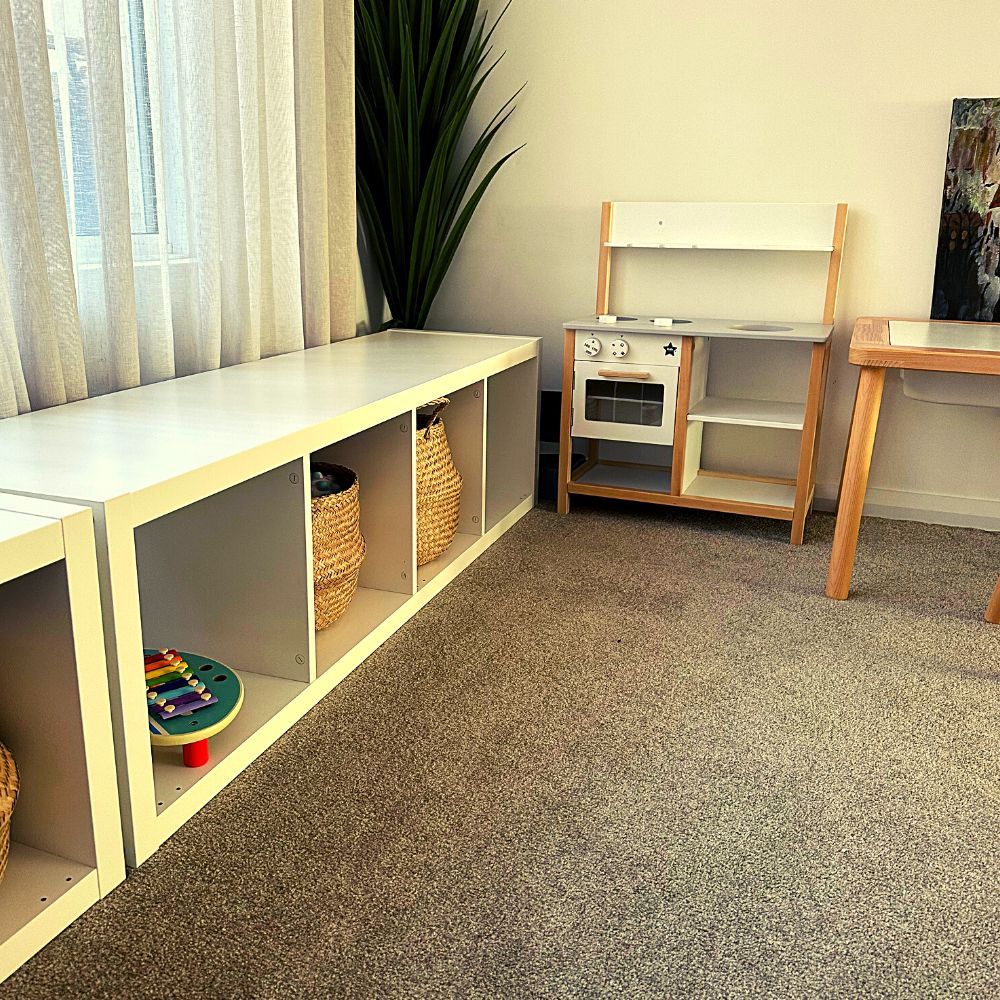
You can extend this principle to the kitchen by having a designated space where they can find healthy snacks and their own dishes. No more climbing on countertops!
Focusing on the Journey, Not the Reward
Here's where Montessori really flips the script. Forget time-outs or dangling carrots in front of them. Montessori is all about intrinsic motivation.
So, when a challenge arises (because let's face it, they will), work on problem-solving with your child. Help them understand that the joy is in the journey and the learning, not some trinket or treat at the end.
The beauty of Montessori guided play is that you can absolutely bring it into your home without remodeling the whole place or breaking the bank. It’s about creating an environment that respects your child’s capacity to explore, engage, and learn.
Frequently Asked Questions
Is Montessori guided play suitable for children of all ages?
Absolutely! The beauty of Montessori guided play is its adaptability. While it's often associated with preschool education, the principles can be applied through elementary school and even beyond. The key is to modify the activities and environment to suit the child's developmental stage.
How does Montessori guided play differ from regular play-based learning in elementary school?
Great question! While both Montessori and traditional play-based learning promote child-centered activities, Montessori guided play has a more structured yet adaptable framework. It aims to develop the child's executive functions, social skills, and creativity through hands-on, practical experiences. The teacher acts more like a guide than an instructor, allowing the child to lead their own learning journey.
Can I apply Montessori guided play principles at home if my child is already enrolled in a traditional school?
Of course! Montessori guided play isn't exclusive to Montessori schools. You can incorporate elements like involving your child in daily chores, creating an accessible environment, and focusing on problem-solving rather than rewards to bring the Montessori approach into your home.
Why is Montessori against pretend play?
I wouldn't say Montessori is entirely against pretend play; however, it is not the main focus of the philosophy. Instead, Montessori education strives to engage children with real-world, hands-on experiences that help them develop practical skills and knowledge. By concentrating on these constructive activities, children are encouraged to apply their creativity and imagination in more productive ways.
My Closing Thoughts
Hey there, you made it to the end! I can't thank you enough for sticking with me through this Montessori maze. I hope it's been as enlightening for you as it's been for me to share it. I mean, come on, who knew that play could be this profound, right? In a nutshell, here's what we unpacked:
- Montessori isn't just "play"—it's guided play that's a gateway to lifelong learning.
- It supercharges kids' executive functions, social skills, and creative problem-solving.
- While traditional play-based education has its merits, Montessori takes a more child-centered, guide-on-the-side approach.
- There are simple, effective ways to bring Montessori goodness right into your home, no PhD required.
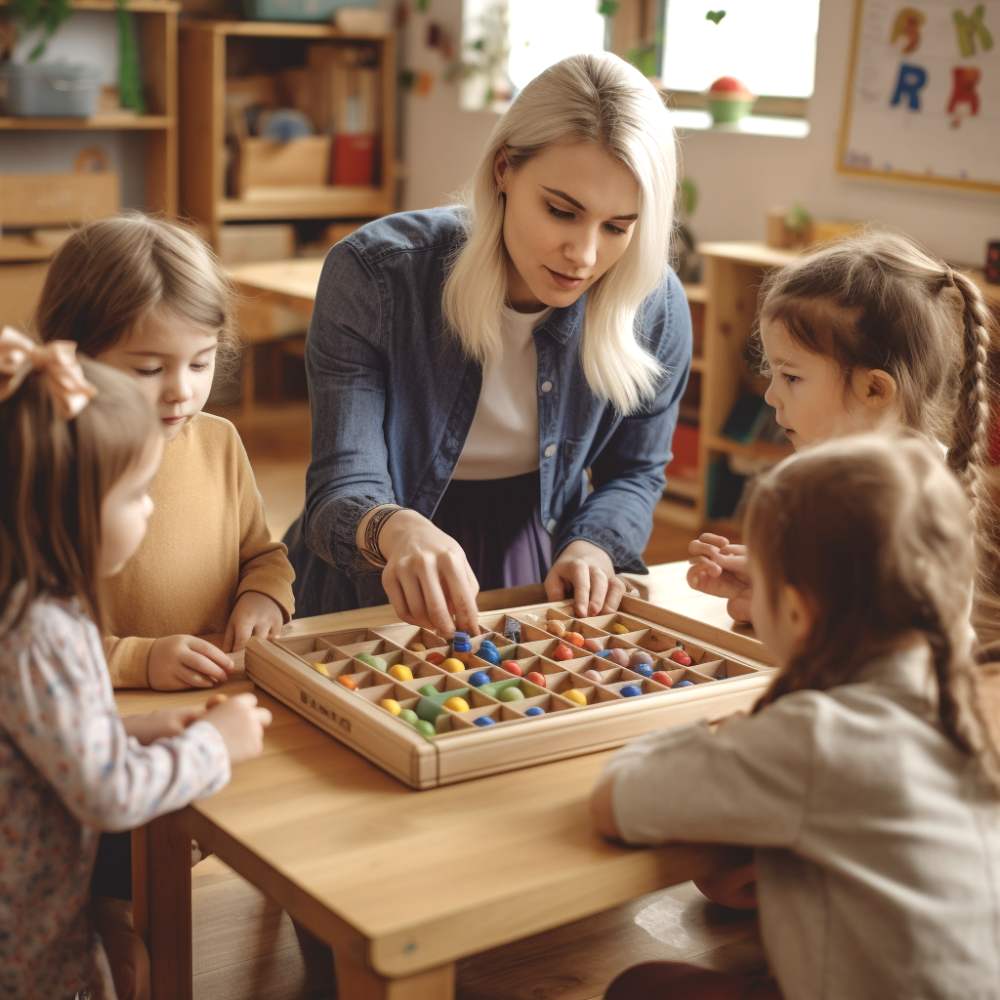
And let's keep it real—parenting is a trip, and every kid is their own universe. There's no one-size-fits-all, but here's what I believe: every child is born with an innate curiosity and capacity to learn. Your job? To guide and provide an environment where they can thrive. And if you ever find yourself at a crossroads or just need to bounce some ideas, reach out to me at admin@themontessoricompass.com.
If this article resonated with you, do the good thing—share it! Spread the Montessori love on your social media, and let's empower more parents to unlock their children's full potential.
Sending you all the warmth and positive vibes your way. Thanks for being awesome and till next time, keep exploring!
References
- Lillard, A. S., & Else-Quest, N. (2006). Evaluating Montessori Education. Science, 313(5795), 1893–1894.
- Mestre, T. L. (2017). The Impact of Montessori Method on Social Skills Development in Early Childhood. Journal of Early Childhood Education, 45(2), 220-230.
- Diamond, A. (2011). Activities and Programs That Improve Children’s Executive Functions. Current Directions in Psychological Science, 21(5), 335–341.



